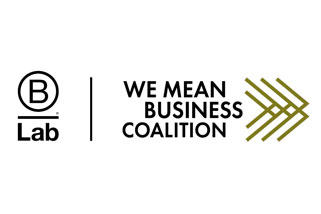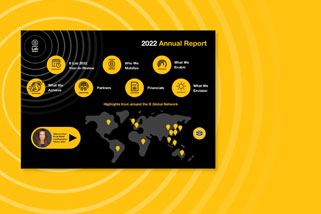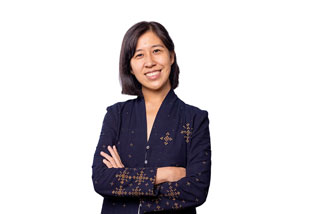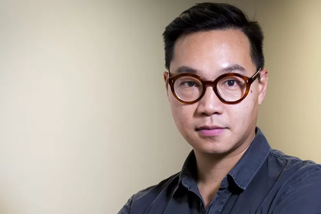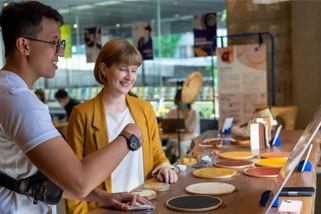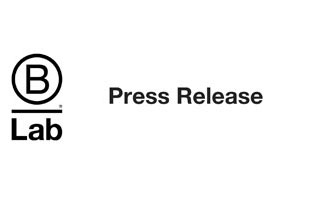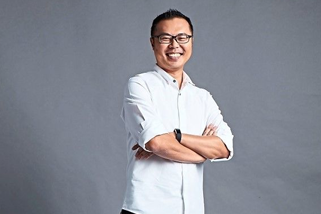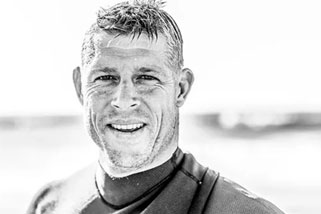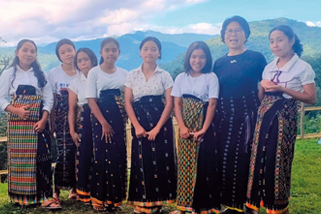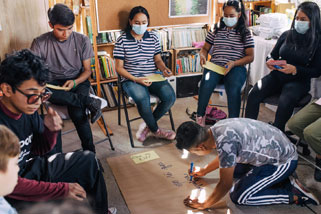By B Lab Global LONDON, 2 May 2023 — Leading non-profits We Mean Business Coalition and B Lab today announced a new partnership to help companies around the world accelerate progress in cutting greenhouse gas emissions. The collaboration is in pursuit of their shared objective of halving global GHG emissions by 2030, and achieving net zero emissions by mid-century at the latest, in order to limit global temperature rise to 1.5°C. Both organizations recognize the central role of businesses to deliver climate solutions and achieve a just transition to net zero. Together, they will work to share technical expertise on climate leadership to drive business advocacy, company action, and accountability. This new partnership between B Lab and We Mean Business Coalition will allow them to develop tools and guidance for businesses, in order to speed up emission reductions in line with the latest science. United by their science-led response to climate change and their shared belief in climate as a mainstream economic and social issue that will shape humanity’s future, both partners are also focused on strengthening corporate governance and driving a supportive global policy environment which facilitates rapid corporate decarbonization. Sharing expertise As a coalition of seven business-focused climate non-profits, We Mean Business Coalition works with thousands of the world’s leading businesses, creating consensus, engaging businesses, and driving corporate net zero leadership. With more than 6,500 Certified B Corporations (B Corps) across 89 countries, B Lab brings expertise in economic systems change as well as learnings on the most effective standards, policies, and tools to shift company behavior and culture, challenging the very structure of capitalism as we know it. Small and Medium Enterprises Central to this partnership is the collaboration between B Lab and the SME Climate Hub. This will see more small and medium businesses signposted to essential guidance on how best to take climate action and build resilience, further accelerating the growing wave of new net zero commitments from this sector of the economy. The Hub is an initiative of the We Mean Business Coalition, the Exponential Roadmap Initiative, and the United Nations Race to Zero campaign in collaboration with Normative and the Net Zero team at Oxford University. “The latest IPCC warnings are stark and clear, we need immediate action from governments, investors, and companies to drive rapid action towards net zero,” said Maria Mendiluce, CEO, We Mean Business Coalition. “This is our last chance to limit warming to 1.5°C and decisive action is needed today to cut emissions and transition to a net zero economy powered by a global clean energy system. By partnering with B Labs, we ensure that a greater number of companies big and small can access the guidance they need to achieve net zero while fostering business accountability and leadership.” “Climate action that centers justice for marginalized communities is not only a moral imperative, it’s really a business imperative for companies of all sizes, in all industries,” says Eleanor Allen, Lead Executive, B Lab Global. “Businesses need standards and tools to guide the way to decarbonize and transform our economic system. That’s why I’m thrilled that B Lab is formalizing our partnership with WMBC after years of collaborating with the coalition’s organizations on various initiatives including Imperative 21 and the B Corp Climate Collective. We have a long history and road ahead together as partners in accelerating climate action. As we say in the B Corp movement, let’s get to work.” About We Mean Business Coalition: We Mean Business Coalition works with the world’s most influential businesses to take action on climate change. The Coalition is a group of seven non-profit organizations: BSR, CDP, Ceres, Climate Group, CLG Europe, The B Team, and WBCSD. Together, we catalyze business and policy action to halve emissions by 2030 and accelerate an inclusive transition to a net-zero economy. Find out more at wemeanbusinesscoalition.org. About B Lab Global: B Lab is transforming the global economy to benefit all people, communities, and the planet. A leader in economic systems change, our global network creates standards, policies, tools, and programs for business, and we certify companies — known as B Corps — who are leading the way. To date, our community includes over 500,000 workers in over 6,500 B Corps across 80 countries and 150 industries, and more than 200,000 companies manage their impact with the B Impact Assessment and the SDG Action Manager. B Lab has created and led efforts to pass over 50 corporate statutes globally that enable stakeholder governance, with over 10,000 companies using the legal framework. To learn more and join the movement, visit www.bcorporation.net. Media Contact: press@bcorporation.net
Launching B Lab Global’s 2022 Annual Report
By B Lab Global 2022 was a big year for B Lab and the B Corp movement – in fact, it was the fastest growth year in B Lab’s history. With a community of B Corps more than 6,000 strong, and 200,000 businesses now registered on the B Impact Assessment to measure, manage, and improve their impact, it was a year of huge milestones. However, our achievements and moments of celebration go beyond these numbers. It was also a year of firsts. In April, B Lab Global launched its JEDI Strategic Plan, in June we welcomed Eleanor Allen as new Lead Executive, in August we unveiled a new Living Wage standard and in October debuted our first full series of the Forces for Good podcast. We also published the first draft of the new standards for B Corp Certification, seeking feedback from the public, witnessed huge engagement across B Corp Month in March and were inspired by collective action groups including the B Beauty Coalition, WeTheChange and the B Corp Climate Collective, mobilizing B Corp and non-B Corps to drive change at scale. As we work together to realize our vision of an inclusive, equitable, and regenerative economy, we must celebrate the wins but also acknowledge the often difficult backdrop in which we continue to operate. As Eleanor shares in her reflection of 2022, “We are more motivated than ever to take on these challenges amidst an external rise in anti-ESG rhetoric, ever-increasing calls to action on the climate emergency, social justice inequalities that continue to discriminate against workers, and cost of living crises around the world –– all while corporate profits reach all-time highs.” Explore our interactive 2022 Annual Report to discover B Lab Global’s year in full. 2022 Annual Report Join us as we illustrate the stories from the numbers in our newly launched 2022 Annual Report Explore the Report
DENICA RIADINI-FLESCH: SukkhaCitta
SukkhaCitta protects the planet and champions local culture by employing rural Indonesian artisans to produce handcrafted clothing using sustainable organic cotton grown by smallholder farmers. WEBSITE | 01. NO POVERTY 08. Decent Work and Economic Growth 12. Responsible Consumption and Production SOUTH ASIA AND CENTRAL ASIA INDONESIA FELLOW 2023
We turned down a client to uphold gay rights
Adrian Ma says that being a B Corp certified business makes it easier to attract good new employeesBy Suzanne Bearne Business reporter It was during the pandemic that Adrian Ma had an epiphany that persuaded him to make his company more environmentally and socially responsible. “We were all celebrating people doing great work,” he says, looking back on the time when people across the UK would go out into the street to clap to show their appreciation of NHS staff and other key workers. “And I thought; ‘Wouldn’t it be good to build a better world ourselves, and start to reposition the company to be more purposeful?’” Mr Ma is the boss of London-based PR firm Fanclub. Rather than creating his own framework for the business to adhere to, Mr Ma decided to apply for a global certification called “B Corporation” or “B Corp” for short. To gain accreditation, companies have to show that they meet certain thresholds when it comes to their social and environmental performance. And they have to make a commitment to change their corporate governance structure to be accountable to not only their shareholders, but to all their stakeholders – staff, customers and suppliers. The ethical scheme was first launched in 2007 in the US, and there are now 6,543 companies around the world which have obtained B Corp status. These range from small firms to larger names such as Ben & Jerry’s ice cream and outdoor clothing firm Patagonia. The not-for-profit organisation behind B Corp is Philadelphia-based B Lab. It says it wants to “make business a force for good”. Each firm pays a fee when it applies, and then – if successful – an annual subscription determined by the size of its revenues. In the UK this is an initial £250, and then between £1,000 and £50,000 a year, before value-added tax. The B Corp certifications were first awarded in 2007 For Mr Ma, becoming part of the B Corp community meant his company went through several changes, including reintroducing paid volunteer days, and giving guidance on recycling in a staff handbook. However, he admits that getting the certification has affected the business’ turnover. “We have had to make tough choices, and turn down 70% of clients who have since approached to work with us,” says Mr Ma. “In one case, there was a great tech company with lots of money, but they were founded by a sovereign wealth fund in Saudi Arabia where homosexuality is criminalised. It didn’t feel right when we have gay people working for us.” However, on the upside, he says, it has increased staff engagement: “Everyone is much more motivated, as they’re focused on purposeful businesses.” He adds that the B Corp status has given the firm “a massive edge when it comes to recruitment, especially among younger employees, and with clients”. Chris Turner, executive director of B Lab’s UK arm, says the pandemic led to a huge swell in applications. “Firms had time on their hands and used it as an opportunity to finish off their B Corp assessment,” he says. “Then there was more attention on sustainability – a continuation of trends we saw before the pandemic. “And the climate conversation had been picking up pace… there was also the explosion of the Black Lives Matter movement, which got businesses thinking more profoundly around issues. There was just more time for deep thinking about purpose and why we’re here.” Due to high demand, Mr Turner says the verification process can currently take anywhere from six to nine months. As part of the process, B Lab asks for documentary evidence, and can do site visits and spot checks, particularly with larger businesses. Member firms then have to re-certify every three years, and each time they have to reach a higher standard. Companies can lose their certification, such as happened to Scottish brewer Brewdog at the end of last year. The withdrawal of its B Corp status came after a BBC documentary – Disclosure: The Truth About Brewdog – revealed accusations of bullying at the firm. Despite that move, B Corp still has its distractors and controversies. Critics point, in particular, to coffee brand Nespresso securing the certification last year. Nespresso, part of Swiss food giant Nestle, has long been attacked by environmentalists who criticise both its business practices, and its single-use coffee capsules. Nespresso hailed gaining B Corp status as an indication of its “commitment to sustainability, transparency and responsible business”. This resulted in an angry response from a group of smaller coffee firms, all B Corp members, who warned in an open letter that giving the status to Nespresso put the B Corp standard “at risk”, and they called for stricter admission standards. Presently, firms applying for B Corp membership only have to score 80 points out of 200, based on a list of criteria. Nespresso received 84.3 points. Nespresso securing B Corp certification raised eyebrows Mr Turner defends the Swiss brand’s admission: “The first thing to say is that the standards Nespresso certified against are transparent, their assessment is 500 pages long and is public. You can download it directly from our website. “On the other side, there’s ongoing improvement, businesses aren’t perfect… B Corp businesses join not just because they want to be recognised for what work they have done, but because they want to improve.” But what about the outrage from fellow B Corps over Nespresso? “We rely on the B Corp community to be constantly pushing… we absolutely welcome that. Our standards are always updated.” Laura Harnett, co-founder of Seep, a plastic-free cleaning supplies company that gained B Corp status in 2021, says the application process is not easy. “It’s a really big commitment, and takes you away from focusing on sales, for instance, as you’re spending about 100 hours on the assessment.” Ms Harnett adds that becoming a B Corp firm has led to tangible results so far, including the London-based firm’s products now being stocked across 60 Oxfam stores. LAURA HARNETT Laura Harnett says
The “Mycelium mushroom road” from Indonesia to Japan: Interview with Ronaldiaz Hartantyo, Co-founder of Mycotech Labs
Launching a new mushroom leather research facility in Japan with the “WTF! We The Future Exhibition” at FabCafe Tokyo FabCafe Global Editorial Team #サーキュラー・エコノミー #サステイナブル #Sustainable #SDGs #Material Tokyo The rise of plant-based leather Increased attention around the urgency of changing our lifestyles to have a lower impact on the environment is more than a trend. Around the world, consumers are reconsidering the materials and brands of products that we use in our daily lives. One example of this is the use of leather which is commonly used in fashion and furniture. Due to its animal origins and water intensive dying methods, leather production contributes to high CO2 emissions. One sustainable alternative is vegan leather made from bio-based materials and consumers are curious. One survey in the United Kingdom showed that 35% of respondents want more vegan leather options. Introducing Indonesia-based biotech startup, Mycotech Lab Mycotech Lab (“MYCL”) is a mushroom mycelium material producing startup based in Indonesia. MYCL produces a lineup of sustainable mushroom-based materials including their original mushroom leather Mylea™. To engage a wider community and expand their sustainable biomaterials market, MYCL has launched an MYCL Japan facility in Nagano, Japan. To kick off the new expansion, MYCL collaborated with FabCafe Tokyo to organize an exhibition: the WTF (We The Future) Exhibition, which aims to redefine what future technology is by posing the seemingly simple question, “What is The Future?”. In this article, you can read the interview with Ronaldiaz Hartantyo, who is co-founder and chief Innovation Officer at MYCL, and Kelsie Stewart, FabCafe Chief Community Officer. Vernacular architecture informs sustainable innovation Kelsie (FabCafe) : Can you tell me about what inspires your work in sustainability? Ronaldiaz (“Aldi” from MYCL) : So actually, my professional background was founded in architecture, specifically in sustainable architecture and conservation architecture. My first meaningful touchpoint to sustainability was when I learned about the practice of vernacular architecture, which is, “architecture without an architect”. In my first job, I often visited remote areas in Indonesia where the buildings are built to meet the immediate, local needs and their design is constrained by materials that are locally available. Whenever I went to remote areas, to visit local communities or local architects, it was me who was learning a lot from the local community, instead of me giving directions to everyone from an expert perspective. From local compost to the materials of our future Kelsie (FabCafe) : Can you tell me about the vision of MYCL? Aldi (MYCL) : Our main objective when we started MYCL is to create impact in the world. We saw that Indonesia had so much underutilized potential. Indonesia is a country with lots of agriculture, which means that a lot of agricultural waste is produced. From all this waste, only around 1% of it is getting converted into compost. This means that the other 99% of the waste goes to landfills; which we saw as an opportunity. Our vision was to use this waste as a sustainable resource for creating the materials of the future. About the WTF! We The Future Exhibition at FabCafe Tokyo Kelsie (FabCafe) : Can you tell me about the concept and goal behind the WTF! (We The Future) Exhibition theme? And can I ask you the question I think many people are also asking- does the “WTF!” mean what we think it means? Aldi (MYCL) : So regarding the use of the acronym “WTF” itself, it was definitely a strategically chosen word for us, with the goal of reaching people with the exhibition. About our goal, we are aware that our current positioning is that we are material innovators and producers and due to this, most of the time, our revenues come from B2B. However, with regards to our new business strategy, we are also beginning to aim at B2B2C. We want to spread our brand values to the grassroots, to the customers itself. We hope that through the WTF! Exhibition we can spread awareness of our values throughout the production process, expressing better than before why our products are important. Another reason for doing this exhibition is that we want people to think deeply about the question: “What will our future be?”. When people think about the future, they often think of science fiction films, of going to Mars or about artificial intelligence. However, when I think about the future, I think about sustainability. More specifically, I think about how we need to be a lot more sustainable to even have a future. The current generation is as pragmatic as ever before, because they are pessimistic when they think about the future. Even though the future is looking bleak, the least we can do is to do as much as we can, to make sure that the next generations can experience the future at all. We were interested in doing this collaboration with FabCafe because this is the first time that we came upon an organization that focuses on developing and exploring new materials in an engaging way. Most of the time we work together with research institutions, like universities, so it was exciting to get in contact with a cafe that explores new materials in this way. When we spoke with the team at FabCafe Tokyo, we also found that we had similar visions with regards to material explorations and getting market feedback on products. “WTF! We The Future” collaboration summary: | Mushroom-based Material EXHIBITION – “WTF! We The Future” | WTF! We The Future Exhibition Opening PARTY | Card Wallet Making Workshop using Mylea™ About the process from mycelium to usable material Kelsie (FabCafe) : Can you tell me about this process of going from the mycelium part of the mushroom to the various MYCL materials? Aldi (MYCL) : The foundation of our technology is mycelium mushrooms, which we grow in a substrate made of agricultural waste. Currently, we are using sawdust as this is the most common agricultural waste in the area that we are based in, Bandung. These wood chips offer nutrients to the mycelium
Reid Hoffman Gifts USD $1 Million to Scale the B Corp Movement
NEW YORK, 21 March 2023 — B Lab Global, the nonprofit behind the B Corp movement, today announced it received a generous donation of USD $1 million from Reid Hoffman, Co-Founder of LinkedIn and Partner at Greylock, to advance its journey to transform the economic system to be inclusive, equitable, and regenerative for all. This commitment will unlock B Lab Global’s ability to scale at a time of unprecedented interest in its B Corp Certification, with almost 10,000 submissions for certification from businesses since COVID began, a 37% increase compared to the previous three-year period. Since co-founding LinkedIn in 2003, Hoffman has made an indelible impact on the business sector, making strategic early-stage investments that have grown iconic companies such as Facebook and Airbnb. In addition to his leadership at Greylock, he currently serves on the board of directors for various technology companies, including Microsoft, Coda, and Joby Aviation, and nonprofit organizations, including Kiva, MacArthur Foundation’s Lever for Change, and New America. “At a time when our world is facing no shortage of social and environmental crises and our political system is increasingly polarized, business is uniquely positioned to lead and influence widespread change,” said Hoffman. “With the influence of the B Corp movement as a credible alternative to business as usual and the benefit corporation legal structure providing a framework for stakeholder governance, B Lab Global has the track record of credible impact necessary to lead business into the future. I believe we need large scale investments in innovative solutions like these to ensure business plays the role that is needed now.” B Lab was founded in 2006 with the belief that business has a role in creating positive impact for all of its stakeholders — workers, customers, community, and the environment — rather than solely maximizing profits for its shareholders. Mobilizing more than 6,000 Certified B Corporations, 10,000 benefit corporations, and 200,000 users of its impact management tools, the organization has reached a pivotal moment in its journey to transform the economic system to be inclusive, equitable, and regenerative for all. As it enters this new phase of impact, this donation will allow B Lab Global to advance programs and tools that are critical for advancing economic system change. “We’re incredibly honored to receive this gift from Reid. B Lab has been deep in the work of economic systems change for over 16 years, and it’s gratifying to see that work being recognized, particularly by someone sought after for his successful scaling of for-profit businesses,” said Eleanor Allen, Lead Executive of B Lab Global. “A major investment like this unlocks B Lab’s ability to continue to be the leading institution on using business as a force for good by scaling the B Corp movement and investing in bold policy ideas and products that drive impact for responsible business.” B Lab relies on philanthropy to create credible standards, build a committed community of users to its products and programs, and advance stakeholder governance legislation and drive its adoption. Learn more at www.bcorporation.net. About B Lab Global: B Lab Global leads the network of nonprofit organizations behind the B Corp movement. With a mission to transform the global economy to benefit all people, communities, and the planet, we create standards, policies, tools, and programs for business, and we certify companies — known as B Corps — who are leading the way. To date, we’ve impacted over 500,000 workers in over 6,000 B Corps across 80 countries and 150 industries, and more than 200,000 companies manage their impact with the B Impact Assessment and the SDG Action Manager. We’ve created and led efforts to pass over 50 corporate statutes globally that enable any business to embed stakeholder governance, with over 10,000 companies using our legal framework. Make business a force for good with us at www.bcorporation.net. Media Contact: press@bcorporation.net
Building a brand with the right tactics
Havas Immerse Malaysia chief creative officer Donevan Chew By DALJIT DHESIAdvertising & Media Monday, 20 Mar 2023 PETALING JAYA: In today’s world not many brands have the luxury of dividing their marketing budget into brand building campaigns and tactical exercises. But the newly appointed Havas Immerse Malaysia chief creative officer Donevan Chew begs to differ. He is of the opinion that both can be done at the same time. In an interview with StarBiz, he said every element, down to a sales promotion should be seen as an opportunity to build a brand. “Invest in the right idea, and a brand activation can be a public relations (PR) piece that could even go viral on social media. So it may not be a question of how much you can stretch your budget but how big an idea is. “That is why we are upskilling our talents to not only be good at ‘above-the-line’ brand communications but also well-versed in social, PR as well as promotion and activation. Glad to say that we have surprised some clients with our through-the-line thinking,” he added. To a question why the veteran decided to join Havas when he could easily secure a job in another relatively bigger agency. Chew said the Havas network feels like no other. He said unlike other agency brands which are amongst the many agency brands owned by a colossal holding company, Havas is the sole creative agency owned by Paris-based Vivendi SA, which has a strong presence in the entertainment industry with names like Universal Music, Studio Canal and Gameloft. Having an edge Havas is currently one of the largest integrated marketing communications and creative agencies in the world. This gives Havas an edge over others as culture, entertainment, gaming, and marketing communications converge, Chew said. “We recently had an Asia-Pacific Creative Summit in the Philippines. It was great to meet the many amazing talents across the region. Working closely together, we hope to foster a network that actually works together. Harnessing our diverse pool of talents to deliver value for clients,” he added. Chew further said that as more brands are beginning to realise that they have an important role to play in culture, how they show up in people’s lives, how they entertain, inform, and how they make a positive impact on the wider world. “We strive to make brands culturally relevant and help them build meaningful connections with the lives they touch. At the same time, not forgetting to care for the well-being of our own talents,” he explained. In an environment where businesses have increasingly becoming more environmentally conscious, Havas Immerse led the way by being the first and only creative agency in Malaysia to achieve the B-Corp certification which recognises organisations that are committed to balancing people, planet, and profit and uses business as a force for good. Commenting on talents, he noted that being an agency of over 60 people, Havas has many young talents who are always ready to rise to the challenge. However, he acknowledges that keeping them engaged is key, especially with the shrinking talent pool and the many doors opened to them. From startups, in-house creative teams and independent agencies to the glamour and fortune of working in Shanghai and Singapore. Not to mention having a go at being a TikTok influencer. Sessions and platforms Havas engages with their talents with chat sessions like the bi-weekly “Ask Andrew” where Andrew Lee, the group managing director of Havas Immerse Malaysia, would answer any questions, no holds barred. While the ‘Today I Learn’ session is where the talents share their interest and passion. To help set the creative bar higher, Chew introduced the Cerebral Spa. It is a platform where the team immerse themselves in the best ideas across the globe and also spends time to appreciate the arts and culture together. Being a mentor in the London International Awards Creative LIAison programme, he firmly believes in caring for the growth of young talents. “Because in a world where everyone’s talking about artificial intelligence, it will not replace the other AI, which is the authentic intelligence of a real human being,” he noted. In view of the booming healthcare industry, the agency also launched Havas Health, a division specialising in Pharma-HCP (Health Care Professionals) marketing. Leveraging off the success of Havas Health across the region, Havas Immerse is building a dedicated team with specialised skill sets to help clients win in this field. Chew said: “Havas Health will also open up doors to create more meaningful work that will make a difference in people’s lives. Coming fresh out of judging the healthcare category at the recent Spikes Asia Festival of Creativity, I am really excited to see where this journey will take us.” “With a little more perspiration, inspiration and fun, I trust that the Havangers, a term used for the Havas staff, will be ready for awesomeness,” he pointed out. Having given up on his childhood dream of being a palaeontologist, Chew stumbled upon the world of advertising as a copywriter. In his career of 23 years, he has helped an array of global and local brands create work of proven effectiveness and creativity across various digital and classic channels. His portfolio includes Nestle, Unilever, Reckitt, PepsiCo, Milo, Wyeth, Fonterra, Libresse and Red Bull to name a few.His work has been recognised at creative award shows across the globe, From Cannes Lions, the Clio Awards, the One Show, D&AD, Spikes Asia (including a Grand Prix and Malaysian Agency of the Year 2022), Adfest (including Independent Agency of the Year 2022) to the Malaysian Kancil Awards, and the Effies. He has also served as a jury at the New York Festivals 2014, Citra Pariwara Awards 2017 (Jakarta), Ad Stars 2018 (South Korea), the London International Advertising Awards 2018 and 2022, and Spikes Asia 2023.
Rip Curl is officially B Corp Certified
BY Lucy Crock RIP CURL is now officially a B Corp Certified Corporation (B Corp), a stamp of independent approval that the iconic surf brand is meeting stringent standards for positive social and environmental impact. Certified B Corps are for-profit organisations whose performance is making a positive social and environmental impact, measured across five impact areas: governance, workers, customers, community, and the environment. To achieve B Corp status, companies must document their positive impact on people, planet, and community, followed by independent verification process every three years. Rip Curl Chief Executive Officer Brooke Farris said the company is proud to receive the certification. “Our Rip Curl crew have welcomed the challenge of certifying against the high-standards required of running responsible business,” Farris said. Farris said the certification marks another incredible achievement on their continuing journey towards a sustainability. The certification includes the brand’s wetsuit factory in Thailand, and international operations in Europe, Japan, Indonesia, Brazil, New Zealand, and more. “We are motivated by the positive impact we can make both now and in the future,” Farris said. “We continue to make significant steps in progressing as a more sustainable brand, with our Global Wetsuit take-back program and the Reflect step of our Reconciliation Action Plan just recently approved.” The certification reflects Rip Curl is meeting various high standards of verified performance, accountability, and transparency on factors from employee benefits and charitable giving to supply chain practices and input materials. Included in the certification is the brand’s wetsuit factory in Thailand, and international operations in USA, Canada, Europe, Japan, Indonesia, Brazil, New Zealand, and Australia. Legendary three-time world surfing champion, Mick Fanning, said he is proud to be on board with Rip Curl as the company levels up. “I am proud to represent a brand that believes in doing its part to protect the environment, support our communities, and is committed to using business as a force for good,” Fanning said. According to KMD Brands Managing Director and Group CEO Michael Daly, Rip Curl is the final KMD business to receive a B Corporation. “We’re so proud that all three of our brands – Rip Curl, Kathmandu, and Oboz – are now officially B Corp certified,” Daly said. “We are honoured to have B Lab commend Rip Curl on its accountability on people, planet, and community.” “Our commitment to balancing people, planet, and profit now runs through our entire business and we look forward to continuing to produce high-quality products that consumers love, while respecting the community and environment we work with.” To find out more, visit the Rip Curl website: www.ripcurl.com.
Torajamelo, Preserving Indonesia’s Ancient Artisanal Weaving
Made In Indonesia by Sari Widiati Collaborating with more than 1,100 women weavers from different communities in Sulawesi and East Nusa Tenggara, Torajamelo blends traditional motifs of hand-woven fabrics into an array of fashion and lifestyle products, clothes, accessories, gifts and decor all given a beautiful ethnic flair. There is a lot of folklore behind the woven pieces made using the traditional backstrap loom weave and of course, the female artisans that work in Indonesia’s rural communities. Batik has already gained worldwide acclaim as an Indonesian craft, revered and respected, meanwhile, this more indigenous technique and associated motifs have yet to reach deserved national and international recognition. Each weaving motif has a specific meaning and purpose and dates back centuries. Of the 300 known ethnic and indigenous communities in Indonesia, almost all possess an indigenous backstrap weaving practice, often utilised by the women of these communities. The woven fabric of art cloth, tenun in Indonesian, holds multiple functions in the lives of the rural indigenous people. It can be the official attire for their ceremonies, a mat to lie down on or sit on, protection against heat and rain, and also a rolled-up bag to store produce as they come back from farming or their other daily activities. In Indonesia, techniques and motifs go by different names, influenced by the local languages and dialects. For example, Mohawk of Lembata, Sotis of Soe, Sungki of Mamasa, Pa’bunga of Toraja, and Jok and Ngencung of Manggarai. Backstrap weaving is an ancient technique, that uses a loom made of sticks, rope and yarn. Vertical threads (‘the warp’) are held by bars, one bar is attached to a secure object (a tree, a pillar), whilst the other bar is attached to a belt or ‘strap’ that wraps around the user’s back, hence its name. Thus, the weaver can control the tension of the warp but leaning forward or back. This configuration makes the loom mobile and has thus been a useful tool for communities throughout history. Woven fabrics are made by combining the warp and weft threads alternately using tools, namely gedogan and non-machine looms. Torajamelo — meaning “Beautiful Toraja” the Torajan dialect— as a slow-lifestyle social enterprise is focused on preserving the heritage of the backstrap loom handwoven fabrics. Since 2008 they have remained committed to empowering impoverished rural women, preventing the breakdown of families by preventing outward migration, rejuvenating Indonesia’s declining weaving art, and protecting the environment. Pa ’bunga Scarf Tenum Songke As of 2022, Torajamelo has worked with 10 weaving communities across the archipelago, such as in Toraja —the location where the social enterprise was founded— and Mamasa in Sulawesi, Soe, Maubesi, and Oesena in West Timor, and Adonara, Lembata, and Manggarai in East Nusa Tenggara, and it will be scaling to reach out to more than 1500 weavers across more communities in the coming three years. “We want weaving to be active from Sabang to Merauke, so people don’t have to become migrant workers. With weaving, they can work, and earn an income from their homes. Then, there are our efforts to preserve Indonesian weaving culture. The impact is extraordinary. We adjust the weaves according to market tastes. What happens is that we can change their mindset — namely being proud to wear their own woven products, not only proud when they see foreigners wearing them.” said Dinny Jusuf, CEO and Founder of Torajamelo. The woven products use natural fibres and natural dyeing techniques as an ardent and honest effort to conserve and sustain the environment. The process of making woven cloth with this process is quite complicated and intricate and can often take many months but that’s how heritage pieces are crafted. And, Every piece of the product tells the story of the making process and the culture. Like tenun from Manggarai weavers, particularly those from Cibal which are known for their Songke weaving technique. This Songke weaving is characterised by using black as the base colour to represent the magnificence of Mori Kraeng, which means ‘God’ in the native Manggarai language. They use bright colours such as red, white, orange, and yellow for highlights. Sarongs and other articles made with Songke weaving have been worn by the local people for a long time. It is used during traditional events by the local people. At first, woven cloth was only used for oneself or family, not traded. A piece of woven cloth has special value because of how long its creation process takes: it includes spinning cotton into yarn, the process of dyeing the yarn, and then weaving until it becomes the cloth. The long process is considered a way to acknowledge nature’s gifts to humans. Nina’s Kebaya Men’s Vest Balloon Skirt Torajamelo offers Nina’s Kebaya for fashion and lifestyle products, a semi-loose fifit kebaya with drop shoulder and wraparound tenun straps. The tenun straps are sewn, one being inside of the garment at the side seam and the other at the seam of the centre front, as an opening or fastening system by wrapping around the waist area of the garment. Meanwhile, the beauty of the Toraja motif, Pa’Bunga Scarf can be a complement to the kabaya. Pa’Bunga means flowery patterns made of plain weave with a floating wrap technique. Orange Pa’Bunga scarf which is made with cotton materials can serve as a necklace or a scarf for many occasions. For formal or non-formal occasions, the Balloon Skirt will embrace your lifestyle. This geometric shape skirt is inspired by Peneton motifs of Lembata’s tenun with Adonara motifs. Or, you can choose a Denim Jacket with a classic high-quality stretch denim jacket with an ethnic twist. Fringed tenun fabric with Adonara motifs is utilized and inserted at the back and sleeves of the jacket to add a pop colour. Torajamelo’s creations, from fashion (women’s and men’s wear), accessories, and home decor, to gifts are available at offline and online stores. For more information:On Instagram: @torajamelowww.torajamelo.com Sari Widiati Sari has been an arts and culture enthusiast for many years. She has written extensively on the arts, travel, and
What drives meaningful youth engagement?
Photo credit: United Nations More and more international organizations have realized the importance of engaging youth in sustainable development programs. Various youth engagement programs have been developed to ensure those young people equally benefit from their region’s economic dynamism. However, a thorough evaluation of the ongoing youth engagement approaches and activities is needed to maximize the impact on youth. A study carried out by Rapid Asia identified important conditions which drive meaningful youth engagement. Since adopting the United Nations Resolution 54/120 in 2000, we have seen a rising global awareness to incorporate the interests of youth into the international development agenda. Education, hunger and poverty are among 15 action areas the international community identifies for youth development. However, a UN Report in 2020 highlighted that youth in Asia and the Pacific have not equally benefited from the region’s economic dynamism and are facing multiple challenges. Due to their demographic importance, it is essential to optimize efforts to engage youth as partners for a prosperous, inclusive, resilient, and sustainable region. Rapid Asia has worked to help optimize the efforts of a youth engagement initiative in the region. The youth initiative delivered youth-focused programs using unique approaches which catalyze SDG delivery, generate and shares knowledge and influence change. Hence, assessing the youth initiative’s outcome and approach was crucial to design its future direction. The evaluation was conducted in 2022, assessing the youth program’s relevance, effectiveness, efficiency and sustainability. The respondents had a high level of participation with youth and knowledge of youth engagement approaches in the region from 2013 to 2021. The process explored various configurations of conditions that lead to the presence or absence of meaningful youth engagement (MYE), including: Level of youth participation Youth capacity to make a meaningful contribution Youth participation in the project cycle Inclusive project design Level of support from within the implementing organization Level of government support. The mixed methods approach was used to have a robust design and results that can inform future programs about how to achieve MYE. The resulting MYE model is shown in Figure 1 below. Five of the six conditions were found to be relevant for MYE. Three conditions were found to be necessary for MYE and included youth having the required skills, inclusive intervention design, and sufficient support from within the implementing organization. On the other hand, youth participation and involvement in the entire project cycle are also important but may not always be necessary. The level of government support was not found to have any bearing on MYE. It was later discovered that the youth programs did not have direct access and, therefore, no direct control of the relationship with the government. If this wasn’t the case, the results could have been different. The model is particularly relevant when youth initiatives are implemented as crosscutting interventions to support existing programs. The model highlights the importance of involving internal stakeholders and identifying youth with skills relevant to the program’s goals. Achieving this requires early planning and involving youth from the start with a clear overview of what is required from them. In short, the results highlight that MYE means ‘the right youth doing the right things’. If you found this article useful, please remember to ‘Like’ and share on social media, and hit the ‘Follow’ button never to miss an article. About the authors: Daniel Lindgren is the Founder of Rapid Asia Co., Ltd. a management consultancy firm based in Bangkok that specializes in evaluations for programs, projects, social marketing campaigns and other social development initiatives. Israr Ardiansyah is an independent consultant working with Rapid Asia.

